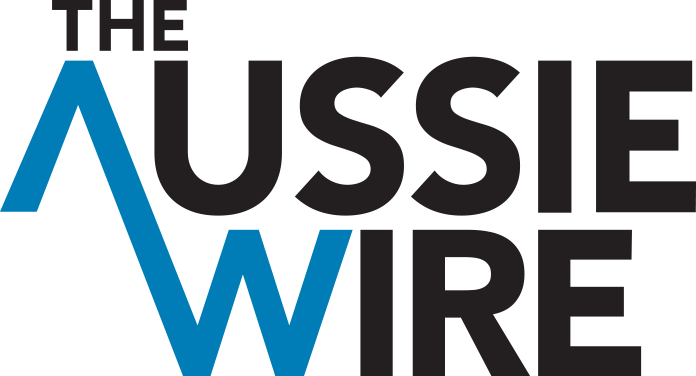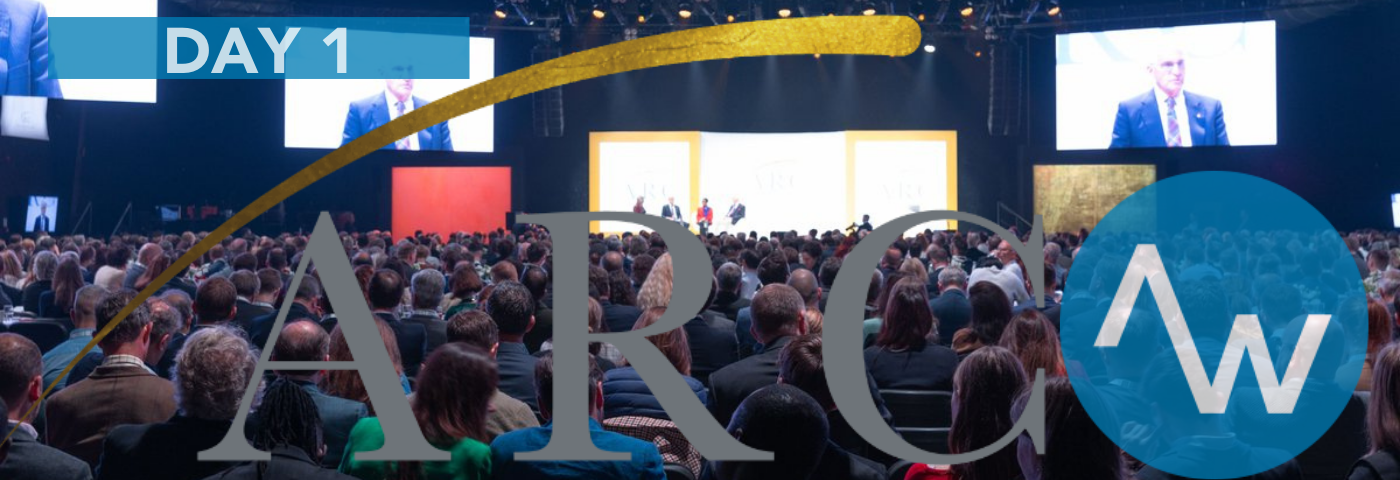1,500 delegates from over 70 countries trickled into the inaugural ARC Conference Day 1 in London on Monday 30 October to hear thought leaders from around the world set out vision for a civilisational journey of renewal.
The conference was opened by Baroness Philippa Stroud, who shared a message of hope. “We are convinced that decline is not inevitable,” she said. “We believe there is a better story, one of optimism.”

‘Better stories’ is the central theme of the conference, with many of the speakers circling back to the idea that the stories we tell ourselves shape our future. If we want a bright future, we must abandon stories that corrode our social fabric, and commit to new stories that foster human flourishing.
“We’re going to debate what needs to be renewed, and identify a path forward full of strength, hope and vision… to build a community filled with people of courage and strength, that sees the opportunity of abundance, not scarcity and decline,” said Baroness Stroud.
Psychologist and ARC co-founder Jordan Peterson outlined a vision of responsibility, faith and courage. Building on the Biblical story of Job – one of the most unfairly afflicted people in the Biblical canon perhaps second only to Jesus – Peterson said, “We have the responsibility to face an uncertain future with faith and courage.”

Former US Speaker of the House Kevin McCarthy roused nods of agreement starting with the declaration that “government is the problem.” He posited that people who enjoy the fruits of what Western civilisation has to offer are “disconnected” from the principles that sustain it. We must reconnect to these values, as “there is no alternative to Western civilisation.”
McCarthy called for a bold response to dark times. “In the face of evil, the time for shyness is over,” he said, warning that the West needs to “stand up to Communist China, North Korea, Russia and Hamas.”
Session 2
The opening session was followed by a panel on a better story for the West chaired by Peterson, and hearing from former Australian Deputy PM John Anderson, historian Os Guinness and Somali-Dutch activist Ayaan Hirsi Ali.
Anderson stated the need for restoration of trust in the Australian democratic process following the contentious Voice referendum: “We want to reinvigorate a citizenship that feels alienated and patronised because they are being alienated and patronised. We can draw out the better angels of our nature and try and ensure that our democracy works again properly on the basis of restored trust.” Democracy, he said, is a spirit, not a machine. It’s the manifestation of the belief that “all souls are equal.”
On the need to reiterate a shared democratic story for the West, Anderson commented: “We do not tell our own story anymore. It has left us in a state of confusion… We leave our young people today without a sense of purpose or place or direction.”

Panellists called for a return to traditional values of equality of opportunity and faith following a period of directionlessness. Guinness cautioned, “The West is in considerable confusion and uncertainty. People don’t have a sense of meaning as they don’t feel part of a great story or tradition.”
Hirsi Ali shared her journey from the Muslim faith, to atheism, and now to a belief in Judeo-Christian values. She talked of the importance of dividing up power and ensuring power is checked as a response to the acceptance of human nature – which, fundamentally, is corrupted by unchecked power.
Session 3
The third session of the ARC Conference day 1 focused on the fraying social fabric in the West. Miriam Cates MP was charged with “the depressing task of describing the problem,” such as declines in family cohesion, fertility rates, mental health, and economic prosperity. She concluded by affirming that “freedom, prosperity, and happiness are not values…they may be the fruits of a successful society, but they are not its roots” and that “the true roots of Western civilisation are the pursuit of the good, the true, and the beautiful”.
Psychologist Jonathan Haidt pinpointed the beginning of a crisis of youth mental health, which he called “The Great Rewiring of Childhood,” from between 2010-2015 with the widespread uptake of smartphones. Haidt offered four norms that societies can adopt to foster wellbeing in our youth:
- No smartphones before high school (14 years old in the US)
- No social media before the age of 16
- Phone-free schools
- Far more free play
Haidt said that the challenge for parents is that if they enforce these norms in the home, their children may feel socially isolated. He characterised this as a “collective action problem.” However, “even if half of us do this,” said Haidt, “we solve the collective action problem.”
Session 4
In the fourth session, Hedge fund boss Sir Paul Marshall called for an end to “crony capitalism,” arguing that “predatory behaviour” is “rife” in the US. “What we have seen since the 2008 crisis to the present day may be the largest transfer of wealth from the poor to the rich since the Norman conquest,” he said.
He called for society to “‘rejoice in the abundance that true free enterprise and free markets create”, noting that “extreme poverty has fallen from 90% to 10% [and] … it has halved in the last twenty years alone”. He stated that “free market capitalism is the greatest instrument of poverty relief that the world has ever seen”.
US Presidential candidate Vivek Ramaswamy, joining via video link from his campaign bus in Iowa, was critical of ‘woke capitalism.’ He described corporate adoption of ESG values as “a threat not just to capitalism, but also to democratic self-governance… that a small group of corporate actors have the right to decide through the back door what citizens could not do through the front door.”
In a panel following Ramaswamy’s address, financier Helena Morrissey, free market think tank CEO Derek Kreifels, and industry veteran Terrence Keeley, discussed whether capital has been misallocated to ESG initiatives, and how better corporate governance can be achieved.
Kreifels was forthright, declaring that “ESG is a scam, as it “takes other people’s capital and uses it to advance a political agenda.” He added, “the E and the S have been a moving target, especially the S. It’s subjective. There’s no defined standard.” The other panellists agreed, with Keely stating, “ESG is officially dead.”
Session 5
The next session of the ARC Conference day 1 explored energy and environmentalism. Energy expert and science communicator Michael Shellenberger reframed the climate narrative, suggesting that we need to take a pro-human approach.
Shellenberger ‘debunked’ climate hysteria myths with data, characterising the climate change movement as a ”substitute religion.” He argued for uptake of nuclear energy as a clean and energy dense alternative to fossil fuels, stating, “nuclear is the safest way to make reliable energy. If you want to reduce your coal consumption, increase your nuclear energy production, it’s that simple.”
Next up were philosopher Alex Epstein and Cato Institute fellow Marian Tupy, who expanded on Shellenberger’s pro-human perspective. Epstein criticised the “anti-human environmental philosophy” of the climate change movement, suggesting instead a philosophy that sees human flourishing as going hand in hand with environmental flourishing. Tupy urged listeners to consider that humans are not just consumers and destroyers, as so often depicted in climate narratives – but that we are “creator producers” as well.
Session 6
Finally, Historian Niall Ferguson was joined by Australian Shadow Defence Minister Andrew Hastie, and Academic Rebeccah Heinrichs in a session dedicated to the liberal democratic ideal.
Ferguson cautioned that liberal democracies are in decline around the world, with the number falling to just 32; or 13% of the world’s population. He called upon leaders across the political spectrum to come together to promote liberal democracies. “We must organise much better to uphold the values of individual freedom,” he said. “Civilisation is too precious an achievement to become a conservative project only.”
Hastie said that there are “serious questions to answer in terms of our defence preparedness”, considering the challenges posed to Western nations by adversaries. Echoing Kevin McCarthy earlier in the day, Hastie said, “bad government is the problem”, adding that “crying out for” is “good government,” “order” and “moral leaders.”
Finally, Heinrichs outlined the systemic challenges facing the West, with regimes that are “ideologically very committed”, in contrast to the West, where we have been “slow to realise what is upon us”. She said that a great distinction among the West was that we “value life”.
Follow The Aussie Wire Team on Instagram, Facebook and Twitter for on the spot reporting and exclusives. We hope you’ve enjoyed this in depth coverage of the Inaugural ARC Conference Day 1.

